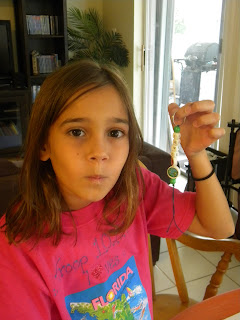Enjoy!!
Mary Gates and Karen Zuckerberg Weren't Tiger Moms
Is the Amy Chua approach bad for the American economy?
Amy Chua's "tiger mom" approach to childrearing has become a national topic of discussion bordering on obsession. She has clearly tapped into deep-seated anxieties among American parents and educators about the country's children increasingly slipping behind their counterparts in the rising economic giants of the East.
The Tiger Mother phenomenon came on the heels of global math and science results that put Chinese students (or, at least, the ones who had migrated to Shanghai) well ahead of the rest of the world, with America's misdirected youth firmly buried in the bottom half. It's easy to imagine that soon the tables of the global economy will be turned, with innumerate Americans working for pennies an hour on assembly lines producing next-generation iPhones designed by Chinese eggheads. The theme was even picked up by President Obama in his State of the Union call to reinvigorate American global competitiveness.
While we shouldn't excuse the dismal showing of U.S. high school students in math and science, we may also not want to push America's next generation to compete head-on with the tiger children of the East. We may be wiser to celebrate the aspects of American culture and education—promoting free-thinking and creativity over rote memorization—that are well-suited to America's current place in the global economy. Let China—with its armies of flawless test-takers—produce automobiles and computer chips with error-free precision; we'll focus on generating a few revolutionary ideas to ensure the next iPhone or Facebook is conceived and designed in America.
One of the basic insights of modern economics is that countries are better off focusing on producing whatever it is that they do relatively well—their so-called comparative advantage. So, for example, if the United States has a particular knack for producing Hollywood entertainment, we'd do well to focus on exporting blockbusters and use the proceeds to buy T-shirts, sneakers, and food.
Their insight comes from the observation that for some goods—like automobiles and semiconductors—the value of the final product can be undermined by any problem in the design process or along the production line. One poorly designed or installed brake pedal, and the whole package is worth a lot less than that of your error-free competitors. Economists refer to this kind of production—where the value of what's being produced is undermined by one weak link—as O-ring production, in reference to the space shuttle Challenger, which exploded 25 years ago as a result of the failure of one seemingly irrelevant O-ring seal in its rocket booster.
But in other industries, it doesn't matter how many mistakes you've made in experimenting with new ideas as long as someone has an "aha" moment now and again. Pharmaceutical companies, for example, are always looking for the next blockbuster drug that will emerge amid thousands of failed attempts.
The authors argue that precision-minded societies—like Germany, Japan, and, increasingly, China—have a relative advantage in churning out identical copies of well-engineered products. They produce armies of well-trained technicians and scientists well-suited to O-ring design and production.
By contrast, the U.S. contributes to the global economy goods that require a few talented people and their bright ideas—we excel in areas like software design, drug development, and financial services, which we trade to the Germans, Japanese, and Chinese for automobiles and computer chips. (Foreigners may no longer appreciate our genius for financial innovation, given the supposedly risk-free mortgage-backed investments that American bankers passed off onto German bankers and Taiwanese insurance companies, investments that turned out to be worthless.)
Aspects of our education system—the progressive-education movement; the science-fair tradition—may in fact be well-suited to producing the labor force that will allow us to continue to compete on this basis. And even Amy Chua describes her approach to learning as joyless and focused single-mindedly on rote repetition and memorization at the expense of free-thinking creative development. The debate on the future of American education reflects this tension between teaching basic skills that generate higher test scores and fostering the blue-sky creativity that wins science fairs and creates great scientists. Indeed, some blame our increasing obsession with test results for an equally alarming decline in creativity.
This point was picked up by Larry Summers—hardly known as lackadaisical in personality or parenting style—who pointed out in a debate with Chua at Davos that if Karen Zuckerberg and Mary Gates had been tiger moms, they never would have let young Mark or Bill leave Harvard to pursue their entrepreneurial dreams, and we might not have Facebook or Microsoft (though America would probably have two more very competent dentists or lawyers).
Of course, it's hard to invent Facebook or design the iPhone without developing sound foundations in math and science, the kind of preparation that Gates, Zuckerberg, and others born to privilege receive in America's elite private schools. The dismal showing of American students in international tests implies that we're limiting the pool of possible innovators by failing to provide this training to most children.
It also doesn't mean that tiger moms should be any more forgiving in strict violin practice schedules or demands for A+'s in everything (except gym and art): That depends on whether they're willing to give up stronger prospects of Ivy League acceptance for the long shot of producing the next Bill Gates. But for the American economy to exploit its relative advantages fully, we may in fact be better off with a few more easygoing parents and fewer tiger moms.

















